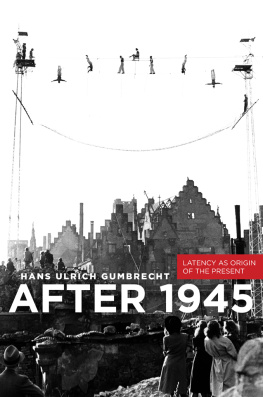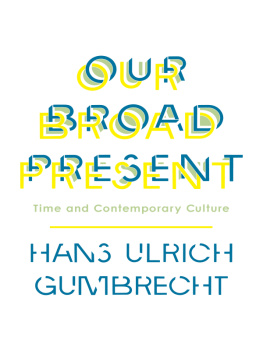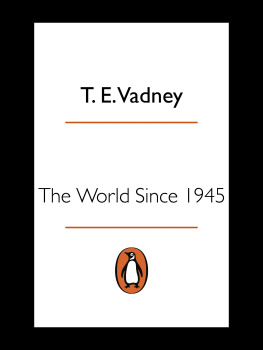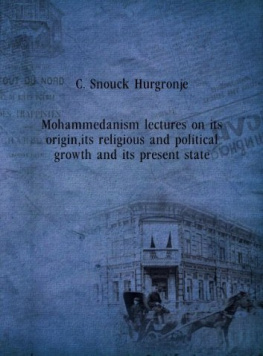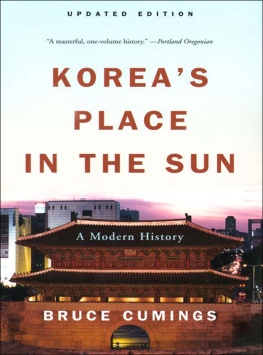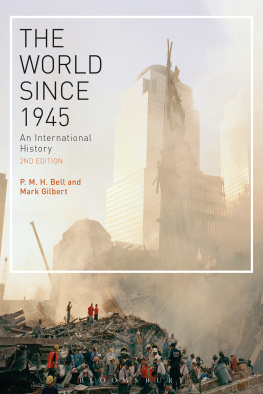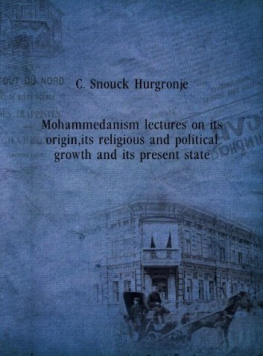Gumbrecht - After 1945: latency as origin of the present
Here you can read online Gumbrecht - After 1945: latency as origin of the present full text of the book (entire story) in english for free. Download pdf and epub, get meaning, cover and reviews about this ebook. City: Stanford;California;United States, year: 2013, publisher: Stanford University Press, genre: Romance novel. Description of the work, (preface) as well as reviews are available. Best literature library LitArk.com created for fans of good reading and offers a wide selection of genres:
Romance novel
Science fiction
Adventure
Detective
Science
History
Home and family
Prose
Art
Politics
Computer
Non-fiction
Religion
Business
Children
Humor
Choose a favorite category and find really read worthwhile books. Enjoy immersion in the world of imagination, feel the emotions of the characters or learn something new for yourself, make an fascinating discovery.
- Book:After 1945: latency as origin of the present
- Author:
- Publisher:Stanford University Press
- Genre:
- Year:2013
- City:Stanford;California;United States
- Rating:4 / 5
- Favourites:Add to favourites
- Your mark:
- 80
- 1
- 2
- 3
- 4
- 5
After 1945: latency as origin of the present: summary, description and annotation
We offer to read an annotation, description, summary or preface (depends on what the author of the book "After 1945: latency as origin of the present" wrote himself). If you haven't found the necessary information about the book — write in the comments, we will try to find it.
Gumbrecht: author's other books
Who wrote After 1945: latency as origin of the present? Find out the surname, the name of the author of the book and a list of all author's works by series.
After 1945: latency as origin of the present — read online for free the complete book (whole text) full work
Below is the text of the book, divided by pages. System saving the place of the last page read, allows you to conveniently read the book "After 1945: latency as origin of the present" online for free, without having to search again every time where you left off. Put a bookmark, and you can go to the page where you finished reading at any time.
Font size:
Interval:
Bookmark:
A FTER 1945
Latency as Origin of the Present
Hans Ulrich Gumbrecht
Stanford University Press
Stanford, California
Stanford University Press
Stanford, California
English translation 2013 by the Board of Trustees of the Leland Stanford Junior University. All rights reserved.
After1945: Latency as Origin of the Present was originally published in German under the title Nach 1945: Latenz als Ursprung der Gegenwart Suhrkamp Verlag Berlin 2012.
No part of this book may be reproduced or transmitted in any form or by any means, electronic or mechanical, including photocopying and recording, or in any information storage or retrieval system without the prior written permission of Stanford University Press.
Printed in the United States of America on acid-free, archival-quality paper
Library of Congress Cataloging-in-Publication Data
Gumbrecht, Hans Ulrich, author
[Nach 1945. English]
After 1945 : latency as origin of the present / Hans Ulrich Gumbrecht.
pages cm.
Originally published in German under the title Nach 1945.
Includes bibliographical references and index.
ISBN 978-0-8047-8518-1 (cloth : alk. paper)
ISBN 978-0-8047-8616-4 (e-book)
1. Gumbrecht, Hans Ulrich. 2. CriticsUnited StatesBiography. I. Title.
PN75.G86G86 2013
801'95092dc23
[ B] 2012043944
Typeset at Stanford University Press in 10.5/15 Adobe Garamond
In loving memory of YASUSHI ISHII,
who was born September 8, 1959, in Chiba,
and died December 17, 2011, in Tokyo:
a younger brother
living through a similar past.
CONTENTS
ONE CAR AWAY FROM DEATH: AN OVERTURE
S. cannot remember a single Christmas Eve during his childhood that he did not spend in his grandparents housea former hunting cabin that was cozy, if isolated, a little more than two hundred miles northwest of his home town. In the winter season, the tall trees surrounding the house created a picture-perfect setting for the holidays. Remarkably, S.s grandfather had managed to buy a car for the boys parents: a brand new beige Opel Olympia. For some complex, administrative reason S. did not understand, the license plate was stamped British Occupied Zone, where the grandparents lived. Since S. and his parents inhabited the American Occupied Zone, the words radiated an almost exotic aura of foreignness. The ride to the cabin led through the hills of the Spessart, west of Frankfurt. At the time, the American military made constant use of the area for field trainingexercises documented in G.I. Blues, a film starring Elvis Presley from the early 1960s. Especially for that part of the trip, which snow and ice often made dangerous, the parents had had a heater installed in the car. S. was proud to have been assigned the job of keeping the rear windowor at least part of itwarm enough for the driver to see through.
One year on the Christmas trip, their vehicle was slowly following, behind a Volkswagen Beetle, an American tank. All of a sudden, the tank slowly veered left and began to spin in circles, as if engaged in a wild, irresistible, and ever-accelerating dance. The father later explained that this must have happened because one of its chains had broken. S. witnessed the front end of the tankthe part beneath the protruding cannonseize the Volkswagen and immediately flatten the area where the passengers were seated; then, it dragged the Beetle about, transforming it into a wreck that no longer even looked like a car. S.s parents had stopped driving and were waiting for the tank to finish its dance. For a brief moment, his mother and father, who were doctors, debated whether it was their obligation to offer assistance to the passengers of the Volkswagen. When the tank finally came to a rest, they decided all help would come too late, anyway. Slowly, they drove past the scene, continuing their journey to the grandparents house in the woods. (For the next few days, S. obsessively tried to picture the bodies of two human beings fused into the metal ball that had once been a car.) They did not want to make the grandfather wait. He always calculated the exact time of their possible arrival, and he was never satisfied unless it seemed that S.s father had neither gone too fast nor been delayed by circumstances beyond his control.
The grandfather had been born in the small village that lay half an hour from the hunting cabin. During the years of National Socialism, he amassed a fortune in a nearby industrial city, operating a few bars in the red light district and running a small factory that produced high-proof liquor. As S. knows today, the grandfatherwho gave the family its namehad moved back to the countryside in the final weeks of the war. Probably, he was more interested in evading what would become known as the de-nazification process than in fleeing American soldiers, about whom he spoke derisively. (They had insistedunlike true warriorson checking all the rooms in the cabin, as if it was dangerous.) Until he died in 1958, the grandfather and his wife never moved back from the village. They managed to keep their business profitable by making weekly excursions to the cityand with the support of a diabolical-looking secretary who was always carrying on about matter and how eternal life was an illusion (as if he meant to announce his own suicide, which occurred long before the grandfathers death).
Indeed, the grandfathers business flourished so greatly that he had bought a large black Opel Kapitaen with white wall tires. He also hired a driver with a Polish name, who wore a hat that looked like a policemans (which must have been his idea of what a professional uniform looked like). Every year, they celebrated Christmas Eve in the warmth of the cabin, surrounded by the romantic landscape covered in snow. They sang carols and reminiscedthis was S.s favorite partabout a past that felt alternately remote and glorious, then immediate and real. In these stories, the American and British authorities were always the bad guys one had to put up with in order to be realistic about the situation. One story in particular fascinated him, although he never quite understood it fully. It involved large glass containers full of alcohol, hidden somewhere in the forest. At some point shortly after the war, the grandfathermuch to his regret but in recognition of practical necessityhad decided to destroy them, despite concerns that he might start a fire.
CHAPTER 1
EMERGENCE OF LATENCY?
A Generations Beginning
June 15, 1948, was a bright yet muggy Tuesday in Bavaria. What would become of Germany appeared altogether uncertain: the nations immediate past weighed heavily, even if people hardly talked about it. Nobody seemed awareperhaps no one really caredthat just one week later the future would be determined. The front page of the Sueddeutsche ZeitungMuenchner Nachrichten aus Politik, Kultur, Wirtschaft und Sport looked much the same then as it does now, except that on this day it featured a black-and-white photograph of Carl Zuckmayer (a German-born author who had become American) with his wife and his daughter, and the price was just twenty Pfennig. At the top of the page, five articles presented the key political news of the moment, in Germany and abroad, in a strangely detached fashion. It was announced that preparations for currency reform (Waehrungsreform) in the three zones occupied by Allied forces had now been finished; all that remained was to wait for official word about the exact date the new monetary order would go into effect. Another article covered a campaign speech President Truman had delivered in Berkeley, California, where he appealed to the Soviet Union not to abandon the collective effort to secure the democratic future of a united Germany. (In all likelihood, the Western allies and Soviet Union were equally inclined to partition the country, even though, for reasons of political gamesmanship, each side had to impute the plan to the other one.) Two brief items reported that the French Parliament was hesitant to ratify the initial political steps necessary to establish a West German state, despite the decision reached thirteen days earlier in London by the other Western allies and Holland, Belgium, and Luxemburg. Finally, the American Military Governor, General Clay, was quoted in a press conference promising that the United States would make every effort to assure East German representation in the new state. Four of these five articles were composed in the neutral style typical of press agenciesindeed, they came from AP, Dena-Reuter, and UP. The sole item to be written by newspaper staff, although it discussed imminent economic reformand therefore a matter of vital existential concernmay well have struck the most dispassionate tone of all. Elsewhere on the page, two other features adopted a somewhat livelierand occasionally aggressivestyle, even though they addressed topics warranting greater tact and reserve from the German editors. The first was the well-known column on the left (which still runs today) entitled Das Streiflicht [the side-light]. On June 15, 1948, the column voiced criticism of American geopolitical strategy; in particular, it objected to the fact that the U.S., through a Foreign Legion approved by the Senate, was lending support to the Jewish State, which had been founded in the former British protectorate one month and one day earlier. With unabashed anti-Semitism concealed by a pacifistic veneer,
Next pageFont size:
Interval:
Bookmark:
Similar books «After 1945: latency as origin of the present»
Look at similar books to After 1945: latency as origin of the present. We have selected literature similar in name and meaning in the hope of providing readers with more options to find new, interesting, not yet read works.
Discussion, reviews of the book After 1945: latency as origin of the present and just readers' own opinions. Leave your comments, write what you think about the work, its meaning or the main characters. Specify what exactly you liked and what you didn't like, and why you think so.

